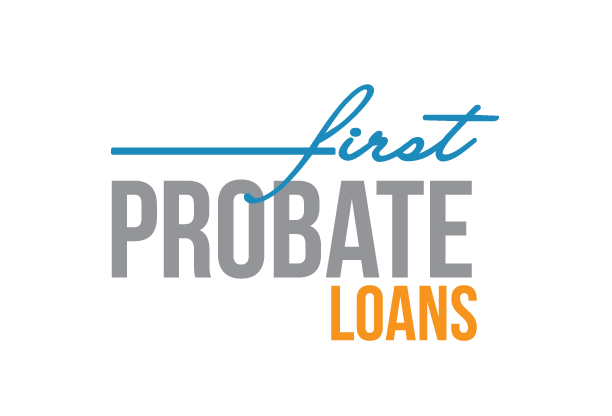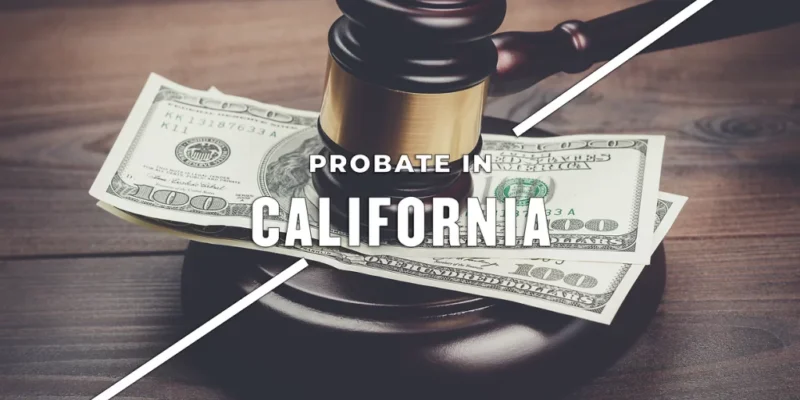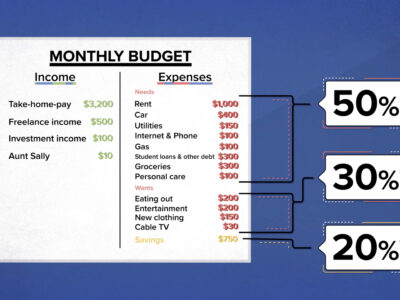Navigating Probate Loans California? Discover how probate loans can offer financial relief and streamline estate settlement. Learn the ins and outs, eligibility, and find trusted lenders.
Inheriting property in California can be a bittersweet experience. While it’s a tangible connection to a loved one, the probate process can be lengthy and expensive. If you’re facing unexpected costs or want to avoid selling assets quickly, a probate loan might be the answer.
In this comprehensive guide, we’ll unravel the complexities of probate loans in California, empowering you to make informed financial decisions during a challenging time.
What are Probate Loans?

Probate loans, also known as Estate or Inheritance Loans, are specialized financial tools designed to alleviate the financial pressures often associated with the probate process. These loans provide beneficiaries with immediate access to cash, secured by the assets within the estate, primarily real estate.
Mechanics of a Probate Loan:
The process typically begins with the beneficiary (or executor) applying to a probate lender. The application requires information about the estate, the property serving as collateral, and the ongoing probate case.
The lender then performs underwriting, which focuses on the value of the estate’s assets and the likelihood of the probate case reaching a successful conclusion. Unlike traditional loans, where credit scores and income levels are scrutinized, probate lenders are more interested in the estate’s inherent value.
Upon approval, the lender offers a loan amount, usually a percentage of the estate’s estimated value. If the terms are agreeable, funds are disbursed directly to the estate. These funds can be used to settle estate debts, cover legal fees, pay taxes, maintain property, or even provide for the beneficiary’s living expenses during probate.
Repayment usually occurs once probate concludes and the estate’s assets are distributed. The loan amount, along with accrued interest and any applicable fees, is then paid back from the beneficiary’s share of the inheritance.
Types of Probate Loans:
Probate loans come in various forms:
- Distribution Advance: This type provides a portion of the anticipated inheritance upfront, giving beneficiaries early access to their share.
- Estate Expenses Loan: This loan is specifically tailored to cover costs like estate taxes, legal fees, or ongoing property maintenance.
- Bridge Loan: Acting as temporary financing, this loan bridges the gap until the estate’s assets can be sold or refinanced, providing flexibility and time for strategic decision-making.
Advantages and Considerations:
The allure of probate loans lies in their ability to:
- Provide swift access to much-needed cash during probate.
- Allow for thoughtful decision-making regarding the sale of estate assets, avoiding rushed and potentially undervalued transactions.
- Facilitate buyouts between co-beneficiaries, enabling one party to retain inherited property.
- Offer peace of mind with no personal liability for the loan, as it’s secured against the estate’s assets.
However, potential borrowers should be mindful of:
- Higher interest rates compared to traditional loans, due to the unique nature and risk profile of probate lending.
- The limited availability of probate loans, as not all lenders offer this specialized product.
- Potential origination fees and closing costs can increase the overall cost of borrowing.
Probate loans can be a valuable tool for beneficiaries facing financial pressure during the probate process or for estates with significant expenses to cover. It’s crucial to research and select a reputable lender with transparent terms and competitive rates, and to consult with legal counsel to ensure a thorough understanding of the loan’s implications.
Who Could Benefit from Probate Loans?
Probate loans can be a valuable tool for beneficiaries who are experiencing financial hardship during probate, estates burdened with significant debts or taxes, beneficiaries wishing to buy out other heirs, and estates requiring funds for property upkeep or legal expenses.
It’s crucial to remember that probate loans are not a one-size-fits-all solution. Each situation is unique, and careful consideration of the estate’s specific circumstances is essential before deciding whether a probate loan is the right course of action.
Consultation with a qualified estate attorney or financial advisor can provide invaluable guidance in making an informed decision.
Why Consider a Probate Loans California?

Inheriting property in California can be a complex and emotional journey, especially when dealing with probate. Probate loans offer a range of financial benefits that can ease this process and provide solutions for various challenges:
- Immediate Liquidity & Financial Relief:
- Probate can often take months or even years to resolve. During this time, estate beneficiaries may need funds for various expenses. Probate loans provide immediate access to cash, allowing you to cover:
- Outstanding debts: Pay off existing mortgages, credit card debts, or personal loans tied to the estate.
- Funeral expenses: Cover the costs of funeral arrangements and related services.
- Estate taxes: Settle any estate taxes due to the state or federal government.
- Legal fees: Pay for attorney’s fees and other legal costs associated with probate.
- Property maintenance: Maintain the inherited property during the probate process, ensuring its value is preserved.
- Living expenses: Support your daily living costs while the estate is being settled.
- Probate can often take months or even years to resolve. During this time, estate beneficiaries may need funds for various expenses. Probate loans provide immediate access to cash, allowing you to cover:
- Preserving & Protecting Assets:
- Selling estate property quickly to raise cash can often result in a lower sale price. Probate loans provide the financial flexibility to avoid hasty decisions, allowing you to sell assets at fair market value when the time is right.
- In some cases, beneficiaries may wish to retain the inherited property but lack the funds to buy out other beneficiaries. Probate loans can facilitate this process, allowing you to keep the property in the family.
- Probate loans can be particularly beneficial for preserving Proposition 58 property tax exclusions for parent-to-child transfers in California.
- No Personal Liability:
- One of the unique advantages of probate loans is that they are non-recourse loans. This means that the loan is secured by the assets of the estate, and your personal credit score or income is not a factor. If the estate cannot repay the loan, the lender can only seek recourse against the estate’s assets, not your personal finances.
- Competitive & Flexible Financing:
- In the California market, probate lenders offer a range of loan options with varying interest rates, terms, and loan-to-value ratios. This allows you to find a loan that aligns with your financial needs and goals.
- Some lenders specialize in hard money probate loans, which can be faster to obtain but may have higher interest rates. Others offer more traditional estate loans with potentially lower rates but stricter requirements.
- Streamlining Estate Settlement:
- By providing immediate funds, probate loans can help accelerate the settlement of the estate. This can be particularly important if there are outstanding debts or pressing financial obligations that need to be addressed promptly.
Remember, it’s crucial to carefully weigh the benefits and drawbacks of probate loans. Consulting with an experienced estate attorney or financial advisor can help you assess your options and make informed decisions about your inheritance.
How Probate Loans Work in California
Probate loans provide a unique financial solution tailored to the complexities of estate settlement in California. Here’s a step-by-step overview of how they work:
- Initiating the Process:
- Open Probate Case: The first requirement is an open probate case in a California court. This means that the estate is actively undergoing the legal process of settling the deceased person’s assets and debts.
- Real Estate as Collateral: The estate must own real estate in California that will serve as collateral for the loan. This property will be appraised to determine its value and the loan amount you can potentially borrow.
- Administrator/Executor Approval: The person appointed by the court to manage the estate (the administrator or executor) must approve the probate loan. They play a crucial role in negotiating loan terms and ensuring the loan is in the best interest of the estate and its beneficiaries.
- Finding a Lender:
- Specialization: Look for lenders who specialize in probate loans or estate loans in California. These lenders understand the unique legal and financial aspects of probate and can offer tailored solutions.
- Research: Compare loan terms, interest rates, and fees from different lenders to find the best fit for your needs. Be sure to choose a reputable lender with a track record of providing transparent and fair loan terms.
- Loan Application & Underwriting:
- Documentation: You’ll need to provide documentation about the estate, including the will, death certificate, and property appraisals. The lender will review this information to assess the risk of the loan.
- Underwriting: The lender will evaluate the value of the estate’s real estate collateral and determine the loan amount they are willing to offer. They may also consider factors such as the estimated timeline for probate completion and the overall financial health of the estate.
- Loan Approval & Disbursement:
- Court Approval (If Necessary): In some cases, the probate court may need to approve the loan, especially if the estate is complex or if there are disputes among beneficiaries.
- Loan Disbursement: Once the loan is approved, the funds are typically disbursed directly to the estate. The administrator or executor can then use the funds to pay off debts, cover expenses, or distribute them to beneficiaries as needed.
- Repayment:
- Estate Assets: Repayment of the probate loan is typically tied to the sale of the estate’s real estate assets. Once the property is sold, the loan is usually paid off in full from the proceeds.
- Other Options: In some cases, beneficiaries may choose to refinance the probate loan into a traditional mortgage once they have received their inheritance.
Key Points to Remember
- Non-Recourse: Probate loans are generally non-recourse, meaning your personal assets are not at risk if the estate cannot repay the loan.
- Interest Rates: Interest rates on probate loans tend to be higher than traditional loans due to the specialized nature of this type of financing.
- Loan Fees: Lenders may charge origination fees and other closing costs.
- Legal Counsel: It’s always advisable to consult with an estate attorney throughout the probate loan process to protect your interests and ensure compliance with California laws.
By understanding how probate loans work in California, you can make informed decisions about leveraging this financial tool to navigate the complexities of estate settlement and secure the financial resources you need during this challenging time.
Pros of Probate Loans California
| Pros | Cons |
|---|---|
| Fast access to cash | Higher interest rates than traditional loans |
| No personal credit check required | Potential for significant fees |
| Can be used for various purposes | Requires court approval in some cases |
| Helps preserve inherited assets | Risk of losing assets if loan is not repaid on time |
Pros of Probate Loans in California
- Immediate Access to Funds:
- Probate can be a lengthy process, often taking months or even years. Probate loans provide immediate liquidity, allowing beneficiaries to access funds for crucial expenses like estate debts, taxes, legal fees, and daily living costs without having to wait for the probate process to conclude.
- Preservation of Assets:
- Rushing to sell estate assets to cover immediate needs can lead to underselling valuable properties. Probate loans provide the financial flexibility to avoid hasty decisions, allowing beneficiaries to sell assets at their fair market value when the time is right.
- No Personal Liability:
- Probate loans are typically non-recourse loans, meaning the loan is secured only by the estate’s assets. Borrowers are not personally liable for the debt, and their credit scores are not impacted if the estate cannot repay the loan.
- Flexibility:
- Probate loans can be used for various purposes, including paying off debts, covering estate expenses, buying out co-beneficiaries, or even making investments to increase the value of the estate.
- Streamlined Estate Settlement:
- By providing immediate funds, probate loans can help accelerate the settlement of the estate, allowing beneficiaries to move forward with their lives and financial plans.
Cons of Probate Loans in California
- High Interest Rates:
- Probate loans often come with higher interest rates than traditional loans due to the specialized nature of this financing and the perceived risk associated with estate settlements.
- Fees and Costs:
- In addition to interest, lenders may charge origination fees, appraisal fees, and other closing costs, increasing the overall expense of the loan.
- Potential Reduction of Inheritance:
- The interest and fees associated with probate loans can eat into the overall value of the inheritance, leaving beneficiaries with less than they might have received if they had waited for the probate process to conclude.
- Limited Regulation:
- While California has some regulations in place for probate loans, the industry is still relatively new and evolving. This can lead to varying terms and conditions across lenders, making it crucial to research and compare offers carefully.
- Potential for Scams:
- Unfortunately, the probate loan industry can attract unscrupulous lenders who may prey on vulnerable beneficiaries. It’s essential to work with reputable lenders and seek professional advice to avoid scams and predatory lending practices.
Making an Informed Decision
Whether a probate loan is the right choice for you depends on your specific financial circumstances and goals. Carefully weigh the pros and cons, consult with an estate attorney or financial advisor, and compare offers from multiple lenders before making a decision.
Remember, probate loans are just one tool in the estate planning toolbox. It’s important to consider all your options and choose the path that best aligns with your needs and priorities.
Choosing the Right Probate Loan Lender in California
Selecting the right probate loan lender is a critical step in ensuring a smooth and successful borrowing experience. With various lenders offering different terms and conditions, it’s essential to consider several factors before making your decision:
Key Factors to Consider:
- Specialization and Experience:
- Look for lenders who specialize in probate loans or estate loans in California. These lenders understand the unique legal and financial complexities of probate and can offer tailored solutions to meet your specific needs.
- Research the lender’s experience in the industry and track record of successfully funding probate loans.
- Reputation and Reviews:
- Check online reviews and testimonials from other borrowers to gauge the lender’s reputation and customer service. Look for feedback on their responsiveness, transparency, and overall satisfaction with the loan process.
- Interest Rates and Fees:
- Compare interest rates and fees from multiple lenders to ensure you’re getting a competitive deal. Be wary of lenders offering unusually low rates, as they may have hidden fees or unfavorable terms.
- Consider the annual percentage rate (APR), which includes both the interest rate and any fees, to get a complete picture of the loan’s cost.
- Loan Terms and Flexibility:
- Evaluate the loan terms, including the loan amount, repayment period, and prepayment penalties (if any). Choose a lender that offers flexible terms that align with your financial goals and repayment capabilities.
- Inquire about the lender’s underwriting process and the estimated timeline for loan approval and disbursement.
- Transparency and Communication:
- Choose a lender who is transparent about their loan terms, fees, and underwriting process. They should be willing to answer your questions clearly and provide all the necessary information upfront.
- Ensure that the lender has a dedicated point of contact who can guide you through the loan process and address any concerns you may have.
- Additional Services:
- Some lenders offer additional services like estate planning assistance or property management support. Consider whether these services could be valuable to you and factor them into your decision-making process.
Red Flags to Watch Out For:
- Unsolicited Loan Offers: Be cautious of lenders who contact you out of the blue with unsolicited loan offers, especially if they pressure you to act quickly or promise unrealistic terms.
- Hidden Fees: Scrutinize the loan agreement for any hidden fees or charges that could significantly increase the cost of the loan.
- Pressure Tactics: Reputable lenders will not pressure you into making a decision or rush you through the loan process. Take your time to research and compare offers.
- Unrealistic Promises: If a lender’s promises seem too good to be true, they probably are. Avoid lenders who make guarantees they can’t fulfill.
Seeking Professional Advice:
Consulting with an estate attorney or financial advisor can be invaluable when choosing a probate loan lender. They can help you assess your financial situation, evaluate loan offers, and ensure that you’re making an informed decision that aligns with your best interests.
By carefully considering these factors and seeking professional guidance, you can confidently choose a reputable probate loan lender in California who can help you navigate the complexities of estate settlement and achieve your financial goals.
Top-Rated Probate Loan Lenders in California

- Commercial Loan Corp:
- Specializes in: Probate loans, trust loans, estate loans, and sibling buyouts.
- Strengths: Helps clients avoid property tax reassessments through Proposition 58 exclusions, offers competitive rates and flexible terms, and has a strong reputation in the industry.
- Website: https://cloanc.com/
- North Coast Financial:
- Specializes in: Hard money probate loans and estate loans.
- Strengths: Offers fast approvals and funding, flexible loan terms, and a focus on customer service. They have over 40 years of experience in real estate lending.
- Website: https://www.northcoastfinancialinc.com/
- First Probate Loans:
- Specializes in: Sophisticated trust and estate loans.
- Strengths: Provides comprehensive solutions, including managing complex probate issues and property tax reassessments. Offers competitive rates and a streamlined process for attorneys.
- Website: https://firstprobateloans.com/
- Probate Lend:
- Specializes in: Probate loans and estate settlement funding.
- Strengths: Offers nationwide service with a focus on quick approvals, flexible loan terms, and transparent fees. They have a user-friendly online application process.
- Website: https://probatelend.com/
- Advance Inheritance:
- Specializes in: Probate advances and inheritance cash advances.
- Strengths: Provides fast access to funds, no credit check required, and flexible repayment options. They also offer probate services and assistance with estate administration.
- Website: http://www.advanceinheritance.com/
Additional Options:
- HCS Equity: Provides loans to trusts and estates in probate, sibling buyouts, and property equalization loans. They also assist with property tax reappraisal exclusions. (Website: https://hcsequity.com/)
- California Hard Money Direct: Offers various types of hard money loans, including probate loans, with flexible terms and quick funding.
Important Considerations:
- Compare Offers: Get quotes from multiple lenders to compare rates, terms, and fees before making a decision.
- Read Reviews: Research online reviews and testimonials from other borrowers to gauge the lender’s reputation and customer service.
- Ask Questions: Don’t hesitate to ask lenders questions about their experience, loan process, and fees to ensure you understand the terms and conditions.
- Consult with Professionals: Seek guidance from an estate attorney or financial advisor to ensure you make the best decision for your specific situation.
California Probate Code Forgiveness of Personal Loan
California Probate Code and Personal Loans
The California Probate Code outlines the legal process for administering a deceased person’s estate, including handling debts and assets. Here’s how personal loans factor into this process:
General Rule:
- Claims Against the Estate: When someone dies with outstanding debts, creditors (including those holding personal loans) must file a claim against the estate within a specified time frame (typically four months from the date the probate court issues “notice to creditors”).
- Payment of Valid Claims: If the claim is valid and the estate has sufficient assets, the personal loan debt will be paid from the estate’s assets before any distributions are made to heirs or beneficiaries.
Forgiveness or Discharge of Debt:
- Insolvent Estate: If the estate is insolvent (meaning its debts exceed its assets), there may not be enough money to pay all claims in full. In this case, debts may be paid proportionally or discharged entirely if there are no remaining assets.
- Debt Forgiveness in a Will: In some cases, the deceased person’s will may specifically forgive a personal loan owed to them by an heir or beneficiary. This is legally permissible in California.
Important Considerations:
- Statute of Limitations: California has a statute of limitations on debt collection. If the personal loan is old and the statute of limitations has expired, the creditor may not be able to collect the debt from the estate.
- Secured vs. Unsecured Loans: If the personal loan was secured by collateral (e.g., a car), the creditor may have the right to repossess the collateral if the loan is not repaid. Unsecured loans have no such guarantee.
- Family Disputes: Disputes among family members regarding personal loans can arise during probate. It’s essential to have clear documentation and communication to avoid conflict.
Example Scenario
Let’s say John dies with a personal loan of $10,000 outstanding. If his estate has sufficient assets to cover all debts and expenses, the personal loan would be paid from the estate.
However, if the estate has only $5,000 in assets and other debts, the personal loan creditor might receive a partial payment or nothing at all, depending on the priority of the claims and any provisions in John’s will.
Conclusion: Probate Loans California
Probate loans can be a valuable tool for navigating the complexities of California probate. By understanding how they work, weighing the pros and cons, and choosing a reputable lender, you can gain access to the funds you need while preserving your inherited assets.
Remember, probate is a marathon, not a sprint. With the right financial strategies in place, you can emerge from this process with your financial future secured.
Important Note: This blog post is for informational purposes only and should not be considered legal or financial advice. Always consult with a qualified professional before making any financial decisions.
Discover more from Digital Wealth Guru
Subscribe to get the latest posts sent to your email.









Comments